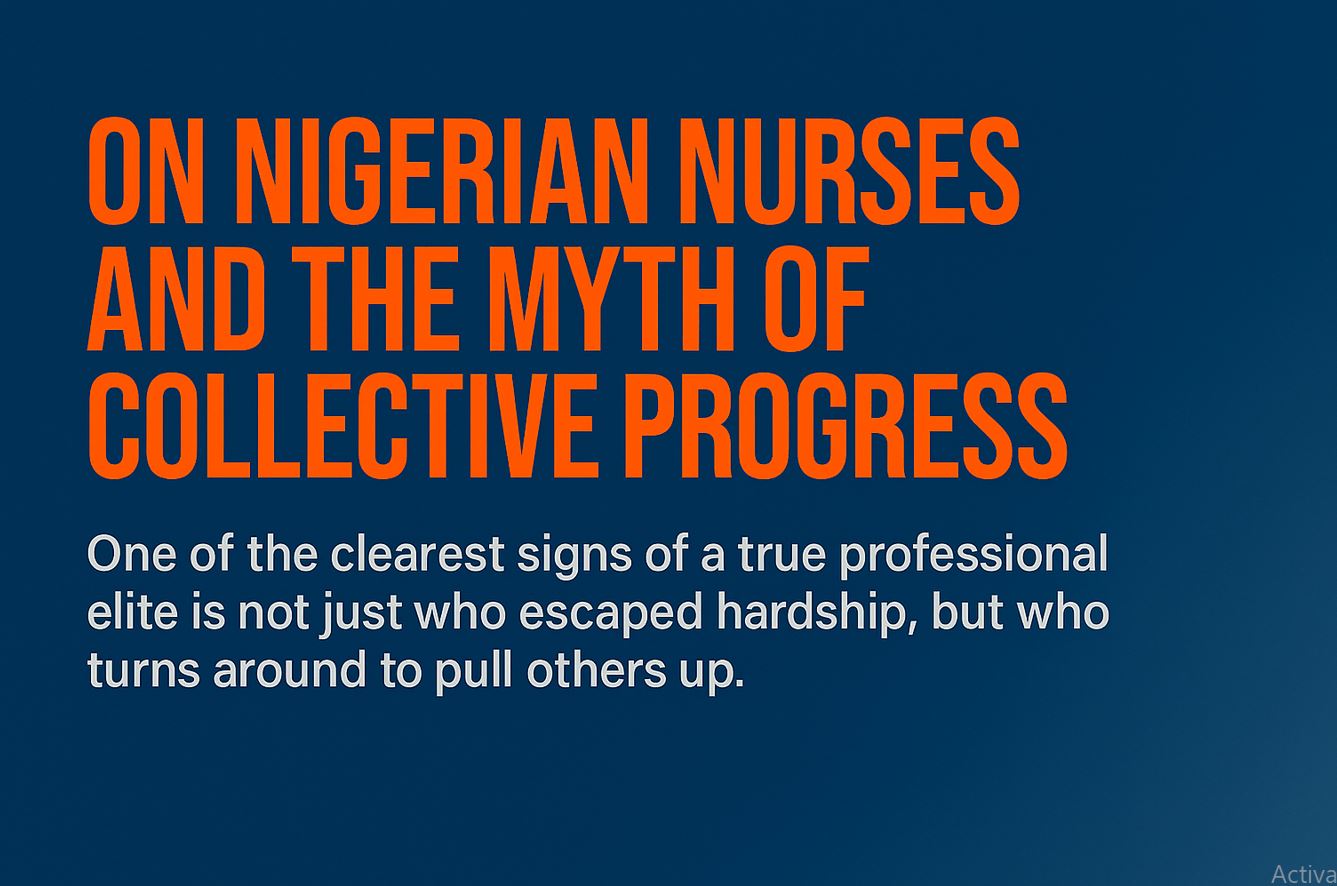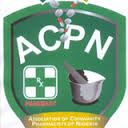The Medical and Dental Council of Nigeria (MDCN), says the council only recognises fellowship certificates obtained by Nigerian doctors to be classified as specialists.
The Registrar, MDCN, Dr Tajudeen Sanusi, said this in an interview with the News Agency of Nigeria (NAN) on Sunday in Abuja in response to the quest by the Nigerian Association of Resident Doctors (NARD) to recognise the membership certificate from the awarding institutions.
The association had as part of its demands in several communiques and correspondences to the Federal Government requested for the reversal of the alleged downgrading of the membership certificate by MDCN.
The certificates are obtained from the National Postgraduate Medical College of Nigeria (NPMCN) and the West African College of Physicians (WACP) and West African College of Surgeons (WACS) as part of the training to become medical doctors in Nigeria.
However, Sanusi said that the fellowship certificate is what is recognised in Nigeria and not the membership certificate.
“Membership was because of some classification from some West African countries because they lack specialists, so membership is not our standard in Nigeria.
“They (NARD) cannot just wake up one day and be telling us what to do, so in Nigeria what we recognise is the fellowship for you to be recognised as a specialist and not the membership.
“That is why NPMCN says no, we cannot water down the value of what we have in Nigeria,” he said.
Explaining further, he said that when they go for residency, at the end of it they obtain the fellowship certificate and not the membership certificate as the membership is not an invention of Nigeria.
He added that it was initiated by the WACP and WACS because of other West African countries and that it could not be forced upon Nigeria.
“All along it has always been fellowship but because of the lack of experts in some other West African countries, they now felt that if they gave them membership with that they could get some appointments.
“However, with membership you have not finished your programme, it is not a terminal thing but because of lack of expertise, that was why and because they were more in number than Nigerians especially the francophone countries, so it is not our own invention.
“Nigeria had to concede to them to be able to do what they want to do but that does not mean that they should water down our own value.
“The implication of that membership they are talking about is that in future we will lack trainers as we will not have people that will be training other people again,” he said.
According to Sanusi, half education is more dangerous than not having an education at all, which is the case with the membership certification.
“They are looking for a short cut, meanwhile they have not finished their programme. Let them go and finish it.
“The membership is not the terminal end of their programme, our standard in this country is the fellowship of NPMCN, anything below that one means that they are not specialists,” he stressed.
Explaining the resident doctors’ part of the issue, the National President of NARD, Dr Emeka Orji, said that the explanation given by MDCN was not tenable.
According to him, the two colleges in question do not offer training for doctors in Nigeria alone but to doctors in other West African countries as well.
“I mentioned Ghana and Liberia, they also offer training to their doctors there and those countries did not downgrade their own so why are we downgrading ours.
“What it means is that the outside world will be looking at us as if we don’t have good doctors here because it is something that happens in Nigeria and other countries, but our own government institution will use their hand to reduce the quality and that means there is a problem,” he said.
Orji explained that residency training is in two parts.
“When we start residency training, it is in two parts. Part One and Part Two.
“Part one is the training you do as a registrar that takes between three to four years depending on the faculty or the specialty. So, you have two broad training colleges.
“We have the NPMCN and the West African College of Surgeons and the West African College of Physicians.
“They do the same kind of training and after the three to four years, you write what is called the membership examination. The NPMCN calls it part one, the West African colleges call it membership examination.
“So after this examination, when you pass you become a member of the West African College of either Surgeons or Physicians depending on your faculty,” he said.
Orji added that the West African colleges issue membership certificates, while the NPMCN does not issue such certificates but noted that the writer passed the examination and then proceeds to the next stage which is the stage of senior residency training.
He referred to the senior residency training as part two or fellowship.
“So when the West African colleges started issuing the membership certificate, the MDCN graded it.
“MDCN has a grading system with which it registers the certificate if a resident has passed part one or membership and they grade it as grade B, which is specialists and that has been the practice for some years now.
“All of a sudden sometime last year, they started grading it as grade C which is a lower certificate that just means additional training.
“So we have been asking them since last year why they will downgrade from grade B that it was placed before as specialist, you are now downgrading it to Grade C.
“The West African Colleges of Physicians and Surgeons is not only for Nigeria, they take care of other West African countries such as Ghana, Sierra Leone, Liberia as they all do the same training there and those countries have not downgraded this same certificate,” he said.
Orji also said that the association had made inquiries from the colleges where these trainings took place and they said they had not downgraded the training.
“So what now gave rise to the downgrading of the certificate that you are issuing after this training?
“They said they don’t know why the MDCN did that and so we had to ask why because it simply means that they are reducing the quality of the products coming out from this training.
“So it was not until we had a meeting with the National Assembly that for the first time we had the Registrar of MDCN say that they have the right to either upgrade or downgrade and we demanded to know why.
“They said that they are doing whatever they are doing in the interest of the profession and that they do not want to release anybody that is not qualified to treat Nigerians to Nigerians.
“So they are saying something that bothers on quackery, so the whole thing is just not good enough, our members are not buying it, because the explanation they are giving is not tenable”, he added.
Lending his voice to the matter, the Registrar, NPMCN, Prof. Akin Osibogun, said that in completing medical school, there are three professional examinations to scale through.
“We have the first, the second and the final professional examination. So will it be proper to call someone who has passed that first professional examination a medical doctor?
“So you have to complete the medical programme and as far as the NPMCN is concerned we do not even award that membership that they are talking about because it does not signify completion of a training programme.
“Our training programme is completed when you finish part two and then we give you our fellowship and you get registered by the MDCN,” he said.
He affirmed that some other West African countries that do not have the type of manpower resources that Nigeria has could allow people with a lower qualification to pass as medical professionals, but that could not happen in Nigeria.
According to him, this is because Nigeria has its required minimum standards.
“So those countries, because of their peculiar needs, wanted an earlier certification even before the training is completed.
“They can do that in their own countries but in Nigeria, the training ends when you complete the final professional examination.
“That is when we know that you are a specialist and that Nigerians will be safe in your hands.
“So as far as the NPMCN is concerned, we award the certificate at the completion of the designed training programme when we are certain that the person is a qualified specialist,” he said.
He further explained that the designed Bachelor of Medicine and Bachelor of Surgery (MBBS) programme has three stages of professional examinations in between before the candidate gets to the final.
“We do not register anyone who has only done the earlier parts. It is when you finish the final professional examination and you pass that we register you as a medical doctor.
“Also, if you want to be a specialist we also have three parts. Primary, part one and part two. It is when you finish part two that you become a fellow.
“Then we know that you can satisfactorily open a patient and close the patient up and perform other surgeries,” he said.
Osibogun, however, advised the resident doctors to complete the designed curriculum and get their fellowship if they are truly Nigerians and are being trained for Nigerians.




